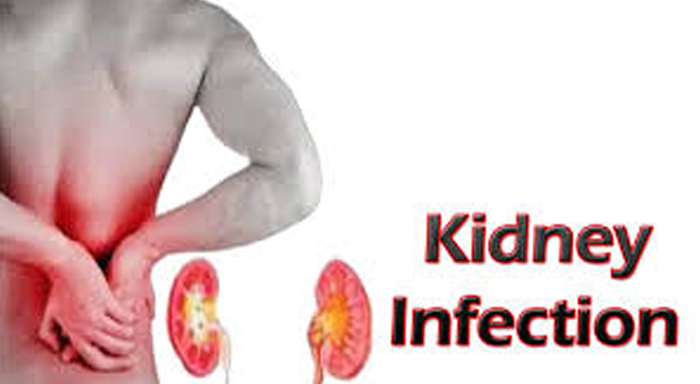1. Infection of the kidney happens with the germs travel up to the kidney from the urine passage or come to the kidney form the blood.
The medical term for this is “pyelonephritis”. It is a more serious condition than the more common and simple urine infection which affects lower urinary passage and not the kidney. If a kidney infection is not treated correctly, it can get worse and cause permanent kidney damage. Early and adequate treatment can prevent partial or complete kidney damage and hence it is important to see your doctor as soon as you get symptoms of urine infection.
2. What are the symptoms of kidney infection?
Feeling feverish to having high grade fever, painful and frequent urination, blood in the urine, chills and pain in the loin area ie back and side at the area of lower side of the rib cage. All or some of these can be present in a given individual.
3. When to see your doctor?
Any of the above symptoms should prompt you to see your doctor immediately. You may need admission to the hospital. Most kidney infections need prompt treatment with antibiotics,either oral or intravenous depending on severity of infection, to stop the infection from damaging the kidneys or spreading to the bloodstream. In rare cases, a kidney infection can cause further problems. These include spread of infection to the blood stream (sepsis) and build-up of pus in the kidney called an abscess.
4. What causes a kidney infection?
Kidney infection happens when a germ (bacteria) enters the urine passage and travels upwards. Also the infection can come to the kidney directly from the blood stream.
5. Who's at risk?
Kidney infections are rare. They can happen at any age and in both sexes. However they are more common in women. In fact, women are six times more likely to get a kidney infection than men. This is because a woman's urethra is shorter, making it easier for bacteria to reach the kidneys.Younger women are most at risk because they tend to be more sexually active, and having frequent sex increases the chances of getting a kidney infection. Elderly males who have prostate problem are also susceptible to urine infections as they do not empty their bladder completely. Patients with kidney stones are at risk so also the ones with defects in the urinary tract form birth. Those who have diabetes and other reasons for decreased immunity too are at risk of frequent urine infections.
6. How to prevent kidney infections?
Proper hygiene can prevent urine infections. Women should void urine after intercourse. They should wash themselves after stools from front to back and not the other way. They should not was the vagina dry of its secretions during shower. They should drink plenty of fluids. If diabetic, keep the sugar well under control. Elderly patients with prostate problem should get themselves checked regularly by the urologist. Elderly lady should get yearly gynaecology check done to see if hormone deficiency has caused problems such as “atrophic vaginitis.”
06 May
By Dr R Kumar



